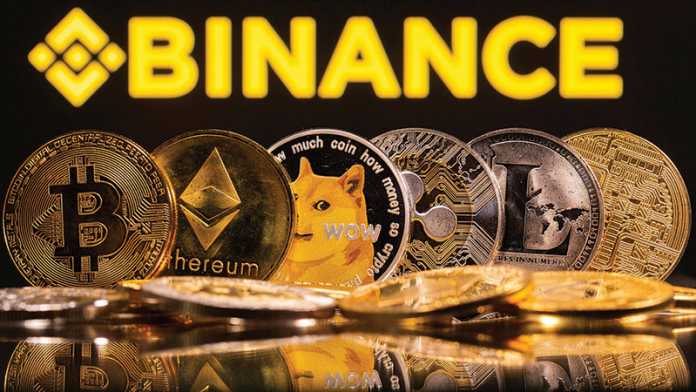By Nick Barnard
In June, various newspaper headlines (including the Financial Times) declared that the Financial Conduct Authority had banned the world’s biggest cryptocurrency exchange from the UK. This may come as a surprise to many UK investors who have been buying and selling cryptocurrency via Binance ever since.
This article examines the facts behind the sensational headlines, which are emblematic of the tussle between investors, financial institutions, cryptoasset service providers, and regulators that has existed ever since cryptocurrencies came to mainstream attention. At the heart of this tussle are questions about the cross-border regulation of cryptoasset companies, and the financial crime implications for investors and institutions who do business with Binance, and other cryptocurrency exchanges.
What is Binance?
Or perhaps more pertinently – where is Binance?
Binance is a somewhat transient cryptocurrency exchange, which in its short life since 2017 has been ‘based’ firstly in China, then Japan, then ostensibly in Malta and is now registered in the Cayman Islands. Such a peripatetic existence seems to matter little to those in charge. When questioned as to where his company was headquartered, its founder Changpeng Zhao declared ‘Wherever I sit, is going to be the Binance office. Wherever I need somebody, is going to be the Binance office.’
Such a response is entirely in keeping with the blockchain philosophy, where cryptoassets are feted as Utopian anarchy, owned and controlled by their communities and beyond the oppressive reach of Governments and regulators. For businesses providing cryptoasset and blockchain services, the appeal goes beyond ideology and into practicality, as crypto’s intangible nature liberates them from the conventional restraints of nationality, geography and even physical infrastructure.
Unfortunately for Mr Zhao, those with an interest in keeping cryptocurrency under control have yet to see the appeal. Given the known risks of money-laundering and consumer harm posed by cryptocurrency, regulators are unlikely to conclude that it is beyond their physical or conceptual remit simply because those involved have no interest in playing by the usual rules, and indeed often set out to avoid doing so. By declaring that Binance is nowhere, Mr Zhao has by omission acknowledged that it could be anywhere, thus giving every regulator a reason to worry and offering little by way of reassurance. As a cryptocurrency exchange, Binance also shoulders the burden of being an identifiable hub in an otherwise decentralised network, and so the inevitable target of regulatory attention. Whilst those dealing in cryptocurrency may enjoy some degree of anonymity, Binance has nowhere to hide.
So if Binance has not been ‘banned’ in the UK, what has the FCA done to generate such exciting headlines? Here Mr Zhao’s rhetoric begins to unravel, at least in part. Whilst the core Binance cryptocurrency exchange may claim to be stateless, there are registered Binance entities across the world, some offering products and services such as derivatives in addition to currency trading. In the US, where the core Binance service is prohibited, there is an alternative regulated crypto-exchange on offer. A cynic might comment that, in fact, Mr Zhao will be happy to register a Binance office wherever is required in order to keep business moving.
In the UK, Binance established its subsidiary Binance Markets in 2020 following the acquisition of an existing FCA-approved firm (EddieUK). Binance claims that Binance Markets had been intended to offer regulated cryptocurrency products (for example, derivatives and cryptocurrency-linked securities) to UK investors, but has never actually operated in the UK. Despite this, the FCA was eager to clamp down, issuing a Consumer Warning on 26 June 2021 that no part of the Binance Group is authorised to carry on regulated activities in the UK, whilst also noting that buying and selling cryptocurrency itself is not regulated. As such, consumers using the Binance exchange enjoy none of the protections attached to regulated products and services. At the same time, Binance published a notice at the request of the FCA agreeing that it was not authorised, but also reminding customers that its exchange services were unaffected and remained open for business.
The story developed on 26 August 2021 when a related Supervisory Notice was made public. This revealed that Binance Markets had fallen foul of the FCA’s ‘use it or lose it’ strategy, recently adopted to prevent firms from continuing to be authorised under Part 4A Financial Services and Markets Act 2000 where in fact no regulated activities are being performed. The FCA fears that such authorisation may give false credibility to unregulated activities; Part 4A permission can be withdrawn in the absence of misconduct if a firm has not performed any regulated activities in the previous 12 months. This was the case for Binance Markets, which not carried out any regulated activities in the UK since its acquisition of EddieUK. The Supervisory Notice reported that responses to FCA enquiries concerning the structure and activities of the firm and wider Binance Group had been incomplete and in some cases Binance Markets had refused to provide information at all. As a result, the FCA concluded that the firm was ‘not capable of being effectively supervised’, and so withdrew its permission to carry on regulated activities and directed it to display the consumer warning described above.
So in practice, the FCA’s Supervisory Notice means little in the short term. A business which never traded has been banned from trading, whilst Binance’s main business continues unhindered. However, the FCA’s stance represents a stumbling block for any of Mr Zhao’s expansion plans, whilst the subsequent reporting reflects the lack of understanding and general suspicion attached to Binance and cryptoassets generally.
Whilst its core exchange service might battle on in the majority of jurisdictions, the frosty reception given to Binance and its subsidiaries by regulators globally may ironically scupper their efforts to remain independent. In particular, in the absence of its own entity approved under the UK Money Laundering Regulations, Binance remains reliant upon regulated institutions to act as the intermediary between the mainstream fiat economy and the brave new world of crypto.
In some cases, this bridge is already ablaze, with many UK banks implementing payment restrictions in the wake of the Supervisory Notice, whilst Barclays, HSBC and Santander have prohibited customers from transferring funds to Binance altogether. In a similar vein, from September 2021, Google will only permit advertising of financial products and services that are FCA-approved, thus debarring Binance (and the majority of other crypto-service providers) from promoting to UK customers, irrespective of whether the services concerned are regulated.
Where banks and other regulated institutions remain willing to act as gatekeepers between the UK and Binance (wherever it may be), investors should tread carefully. Until it resolves its difficulties with the FCA, the risk profile of Binance is unlikely to improve. At the milder end, traders may find their business is no longer welcome as institutions de-risk away from crypto. At best, accounts will be closed, incurring the administrative inconvenience of establishing a new banking relationship elsewhere, of which options are increasingly limited for crypto-related transactions. Things may get worse if the institution, spooked by the FCA’s Supervisory Notice, chooses to play it safe and make a Suspicious Activity Report to the National Crime Agency before releasing the balance of funds. Again, at best this will result in a delay whilst the NCA considers whether to consent to the transfer. If the NCA decides to investigate further and requests an extension to the moratorium period, there may be a delay of a month or more. In the worst-case scenario, the funds could become subject to an Account Freezing Order, and thereafter be at risk of forfeiture.
Whilst this may seem an extreme or excessive outcome, it is in fact entirely realistic. Crypto was an AML red-flag long before the FCA’s recent action. As demonstrated by those institutions which have already blacklisted Binance, and the borderline inaccurate reporting on the effect of the Supervisory Notice, both the regulated sector and the media are suspicious, confused or both. It is difficult to explain the novel and fast-moving processes involved to compliance officers and investigators who are only just catching up with crypto. This is made harder by the offshore nature of the trading and related data, and the absence of any ‘real world’ commercial activity to back up the transactions. As such, it may be a challenge to dispel the low threshold of suspicion required to prolong a money-laundering investigation, whether that be in the form of a Suspicious Activity Report moratorium extension or an Account Freezing Order. The consequence is that those using Binance for entirely lawful (if perhaps unusual and often misunderstood) purposes may find that the immediate problem is not the availability or legality of its services, but negotiating the fiat gatekeepers. Whilst Binance and cryptocurrency generally have thrived on their perceived freedom from conventional regulation, such virtues will become curses if traders simply encounter a different set of risks and barriers through AML regimes and processes.
Plainly there is a huge market for cryptocurrency trading, which Binance has succeeded in dominating. However, the increasing regulatory pressure from all sides indicates that the room and time available to grow is limited, at least in its current form. As demonstrated by its attempts to secure FCA authorisation, which in December 2021 Mr Zhao confirmed remains his ambition, Binance finally appears to be embracing rather than shunning regulation, at least in part. Such approval may prove vital for Binance to continue expanding, by providing it with the kind of credibility needed to appeal to mainstream investors, who are unlikely to take an interest if they fear becoming embroiled in a money-laundering investigation, alongside the risks of fraud and market volatility for which crypto is already notorious, as well as authorisation to promote its services to those audiences. The trick for Binance will be doing so in a way that preserves at least some of the freewheeling magic that has made cryptocurrency a success so far.
About the Author
Nick Barnard is a Senior Associate at Corker Binning, specialising in advising and representing individual and corporate clients in a range of criminal and regulatory matters. In recent years, Nick has acted in some of the most high-profile and complex investigations into fraud, bribery, tax offences, money laundering and asset forfeiture in the UK and abroad. Nick also has expertise in general crime matters, having provided advice from the police station to the Magistrates’ and Crown Courts on offences including murder, rape and grievous bodily harm to VAT fraud, drink-driving, possession of indecent images and misconduct in public office.
Disclaimer: This article contains sponsored marketing content. It is intended for promotional purposes and should not be considered as an endorsement or recommendation by our website. Readers are encouraged to conduct their own research and exercise their own judgment before making any decisions based on the information provided in this article.






































































